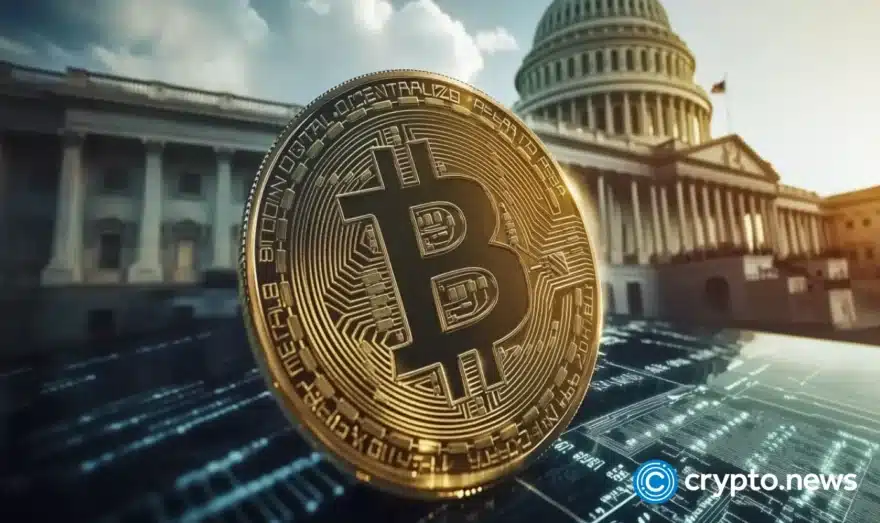What is a block reward?

Block rewards play an integral role in the tokenomics of a cryptocurrency. Read on to learn what is a block reward and what role it plays in the running of blockchain protocols.
A block reward explained is pretty straightforward. It is a form of incentive given to network participants called miners or validators for verifying and adding new transactions to a blockchain.
Miners are responsible for discovering new blocks in the blockchain, and these rewards serve as a way to encourage them to participate in the network and secure it.
The network participants who verify transactions in proof of work (PoW) networks, like Bitcoin (BTC), are known as miners. In proof of stake (PoS) networks, they are referred to as validators or stakers.
In the Bitcoin ecosystem, the block reward incentivizes miners to direct computing power towards securing the Bitcoin network. This reward cuts down by half every four years or every 210,000 blocks in what is known as the Bitcoin halving. Miners also receive transaction fees as part of their reward for securing the integrity of the Bitcoin network.
The reduction of the block rewards is part of Bitcoin’s mechanism to slow down the introduction of new coins into the circulating supply, which helps to power the cryptocurrency’s deflationary monetary policy.
Table of Contents
Types of block rewards
To better understand what is a block reward, you need to know that it mainly consists of two components: the block subsidy and the transaction fees. Block subsidies are the new tokens introduced to the blockchain and given to miners for their work in discovering new blocks, confirming transactions, and securing the blockchain. Transaction fees, on the other hand, are the money paid by users of a blockchain network to get their transactions validated.
Each cryptocurrency has its own validation process and reward system. Bitcoin, for example, as stated earlier, uses the proof of work system for its block rewards. It is the original consensus mechanism that was used by cryptocurrencies, including Ethereum (ETH), in its early days.
Here, miners compete to solve complex mathematical puzzles to validate transactions and create new blocks. The miner who solves the puzzle first gets the block reward, consisting of newly minted coins and transaction fees.
In other consensus mechanisms, such as proof of stake, validators propose and validate blocks based on the number of tokens they hold and are willing to put up as collateral. They then receive rewards in the form of additional tokens, which are usually the native cryptocurrency of the blockchain they are on.
The more tokens a validator stakes, the higher their chances of being chosen to create a block, and unlike PoW, PoS networks often have a fixed annual percentage reward for validators.
The combination of mining rewards and transaction fees creates a robust incentive structure for miners, promoting network security, decentralization, and transaction validation.
Together, these elements provide the economic framework that keeps cryptocurrencies decentralized and in line with miners’ incentives for the general well-being and operation of the blockchain.
How block rewards work
Block rewards work differently depending on a blockchain network’s consensus mechanism. A consensus mechanism is a fundamental protocol used in blockchain systems to achieve agreement, trust, and security across a decentralized computer network.
There are several consensus mechanisms in use in the blockchain space, but the two most well-known ones are the previously mentioned PoW and PoS, whose participants are known as miners and validators.
How do PoW miners earn block rewards?
When proof of work miners such as those on the Bitcoin network confirm transactions, they are bundled into blocks, and a new block is added to the previous set of blocks on the blockchain.
There are currently 19.695 million Bitcoins in circulation out of the 21 million that will eventually exist. It means that there are less than 1.3 million Bitcoins still to be mined.
The block reward-earning process in PoW networks starts when miners collect pending transactions. They then perform computationally intensive calculations known as hashing to find a specific value or nonce that, when combined with the block data, produces a hash with particular properties, such as a certain number of leading zeros.
The first miner to find a valid nonce that satisfies the difficulty criteria broadcasts the new block to the network. When other network participants approve the integrity of the nonce, the successful miner receives a block reward consisting of newly minted coins specific to that blockchain.
For example, Bitcoin miners get their rewards in the form of BTC, while Litecoin (LTC) miners get their block rewards in the form of LTC.
Additionally, miners collect any transaction fees paid by users for including their transactions in the block. The total reward, which consists of a block subsidy and transaction fees, is then credited to the miner’s wallet.
The amount of the block reward is calculated based on pre-set formulas that consider various factors such as network activity, mining difficulty, and the consensus mechanism.
When networks have high amounts of transactions going through them, participants get higher rewards. Likewise, if mining becomes more challenging, the reward may increase.
Block reward in blockchain varies, with each network having its reward structures. Some blockchains have fixed rewards, meaning the same number of tokens are given as a block reward every time, while others gradually decrease the reward over time.
For example, Bitcoin goes through a halving roughly every four years, with each halving reducing the block reward given to miners. The latest halving event occurred on April 19, 2024, and it reduced the amount of BTC successful Bitcoin miners receive to 3.125 BTC for each block discovered.
When the final BTC is mined by 2140, it will signal the last block reward Bitcoin any miner will receive, and from there onwards, miners will only earn transaction fees because new Bitcoins can no longer be mined.
For now, however, Bitcoin miners will continue earning the block reward determined by the halving plus the transaction fees that accrue from people using the network.
The role of block rewards in Bitcoin’s tokenomics
A block reward in Bitcoin is important because it acts as an incentive for miners to secure the network. Every new transaction confirmation adds to the longest chain of transactions. Consequently, this ensures that miners only uphold the correct chain of blocks in the network.
Additionally, block rewards control new currency issuance. The block reward system, by determining how new coins circulate, plays an essential role in the Bitcoin protocol’s monetary policy, creating deflationary pressure by slowing down the speed at which new coins enter circulation.
The regular reduction of the Bitcoin block reward is one of the genius features of Bitcoin, which has helped it to increase in value over the years as growing demand has been met not only with a fixed coin supply but also with a slowing down of new coins entering circulation. This has resulted in upward price pressure.
How do validators earn block rewards in PoS networks?
In a PoS network, validators stake the network’s native token to take part in the blockchain’s consensus protocol to verify and process transactions.
Validators are then randomly selected to propose and validate new blocks based on the number of tokens they hold in the network. The more tokens a validator stakes, the higher their chances of being selected to create a block.
Furthermore, the amount paid out to validators depends on the percentage of the total staked amount of coins they hold. The more coins they stake, the higher their share of the paid-out block rewards.
The block reward depends on the specific blockchain, as different PoS chains pay different block rewards.
Validators are typically chosen in a deterministic or pseudo-random manner to ensure some level of fairness. When it’s their turn, they propose a new block containing a batch of transactions. Other validators then verify the proposed block to ensure its correctness, and if the block is valid, it is added to the blockchain.
The validators then receive block rewards for their participation, usually consisting of additional native tokens of the PoS blockchain minted specifically for this purpose.
It should be noted that most networks have put in place some form of penalties to guard against validators acting maliciously. If they act dishonestly, for example, engage in double-signing, censorship, or other violations, then a significant portion of their staked tokens may be forfeited in what is known as slashing.
Another point to note is that validators can either operate their nodes or allow others to delegate tokens to them. Delegators entrust their tokens to validators, who then share the rewards with them.
The system is popular because delegated tokens often contribute to the validator’s total stake and increase their chances of being selected to propose a new block. It also enables those who don’t hold significant amounts of a token to earn block rewards still.
Final thoughts
Hopefully, now the block reward meaning is more apparent to you, and you can see the fundamental role it plays in cryptocurrency economics, particularly in systems like Bitcoin, where miners or validators play a crucial role.
These rewards not only incentivize participants to secure the network but also control the introduction of new coins, shaping the overall monetary policy.
The mechanisms vary between proof of work and proof of stake networks, yet they share the goal of maintaining network integrity while rewarding participants for their contributions.
This dynamic interplay between rewards, consensus mechanisms, and network security forms the backbone of cryptocurrency ecosystems, ensuring their continued operation and growth.















